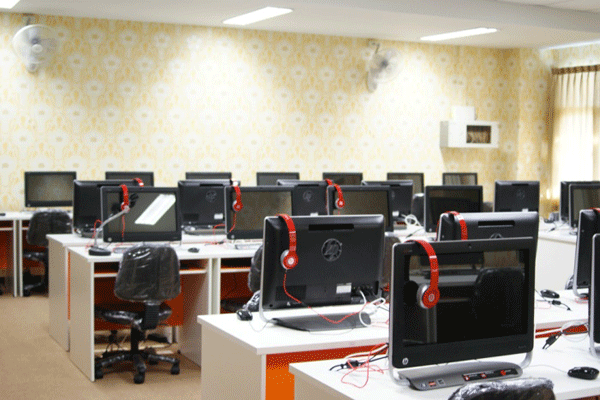Prime
How e-library will streamline learning

Mr Saviour Najuna, one of the developers of e-Library, demonstrates how the system works during its launch on March 21, 2023. PHOTO/FRANK BAGUMA
What you need to know:
- E-learning was inspired by the Covid-19-induced lockdown in 2020, when schools were closed and students remained stranded.
Experts from e-library Uganda have launched a digital library for O-Level new curriculum, where learners and teachers will access content.
The platform, Mr Boniface Lukwago, one of its founders, said will help schools and learners to access quality online education services at a cheaper rate.
“Our main aim is to get well-researched content from authors approved by the Ministry of Education and disseminate it to teachers and learners for the purposes of enriching their research at a cheaper rate,” Mr Lukwago said during the launch of the platform at ICT innovation Hub in Kampala yesterday.
The project was inspired by the Covid-19-induced lockdown in 2020, when schools were closed and students remained stranded.
After some time, the government introduced new innovations in online teaching and platforms which students used to continue with their learning.
Regarding this, the development partners have suggested that digital teaching and learning should continue to enable students to interact.
Benefits of the platform
Mr Henry Migadde, a co-founder of the project, said the platform is cost-effective whereby it offers low cost access to a vast collection of digital resources, including books and multimedia materials.
“On an average, a book may cost Shs20,000 and you have about 600 books to buy, which is very expensive but it is cheaper when you use an application.
Mr Migadde said users will part with Shs1,500 per day to access the platform, Shs7,000 a week, Shs18,000 a month and Shs35,000 for a school term.
For schools that will open up an account to access and upload content through this platform, it will cost Shs700,000 per term.
Mr Migadde added that teachers will also find it easy to disseminate information to learners, as well as conducting their personal research.
In addition, he said the platform gives a broader range of resources, with no limit to space.
“It is also a source of income to content creators because when their content is uploaded, it will help them to be recognised and also earn money out of it,” he added.
How users will access the content
To access content through this platform, a student needs to first open up a personal account through e-library Uganda URL address.
After, they choose, content of their respective classes. A school with an account on the platform can personalise its space by adding content for their students.
NCDC speaks out
The National Curriculum Development Centre (NCDC) spokesperson, Mr Doe Taddeo Bwambale, said the centre supports all innovations that are in line with NCDC standards.
“We have not yet interfaced with this platform. However, any innovation that supports the effective delivery of teaching and learning will be welcome but we need to ensure it is in line with our standards,” he said.
Background
The new lower secondary curriculum is a learner-centred pedagogy, which was rolled out in February 2020, replacing the old curriculum.
Experts said the old curriculum was not in line with international benchmarks in key learning areas because it put emphasis on book learning rather than mastery of competencies and skills, among other issues.




